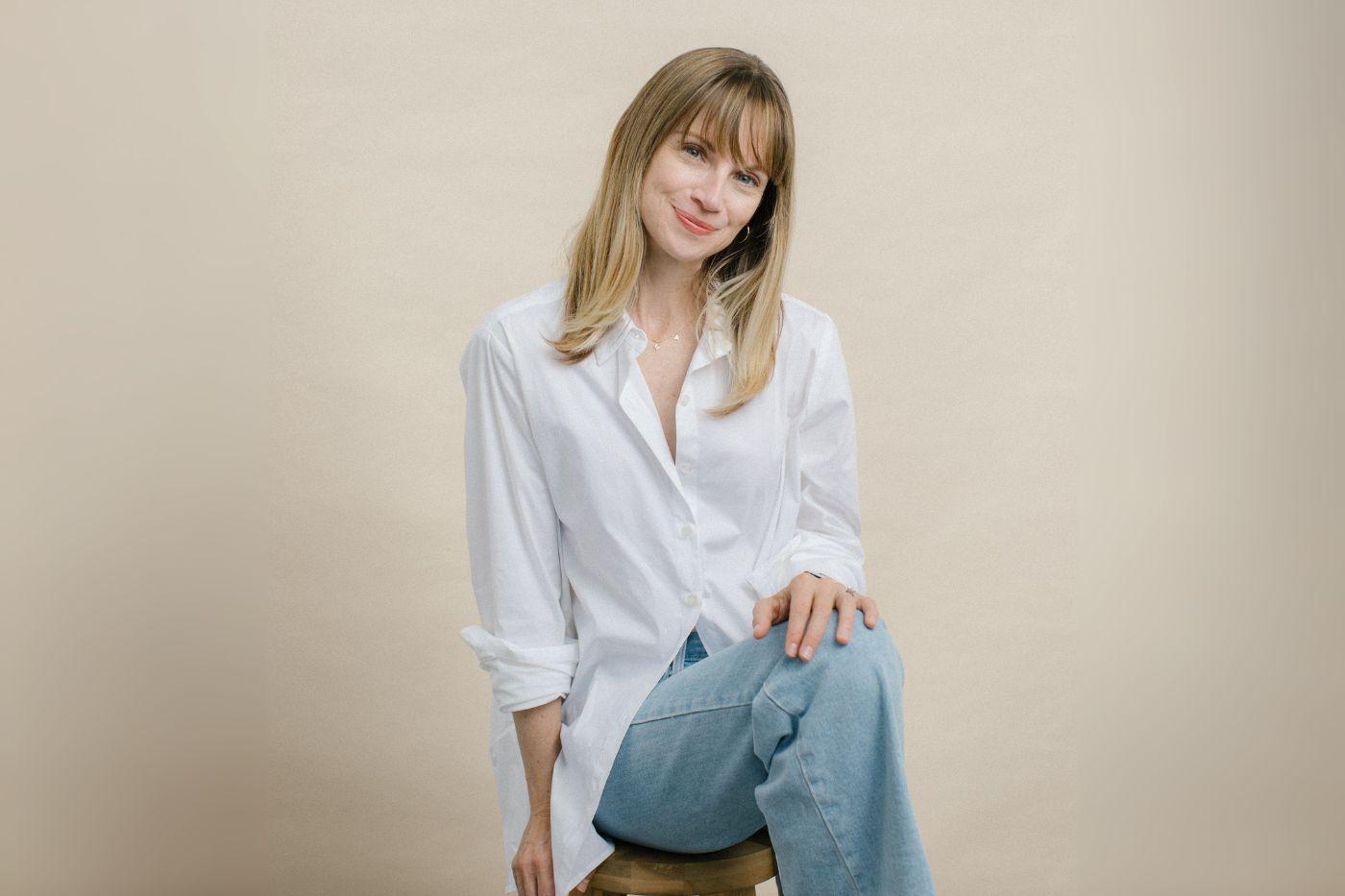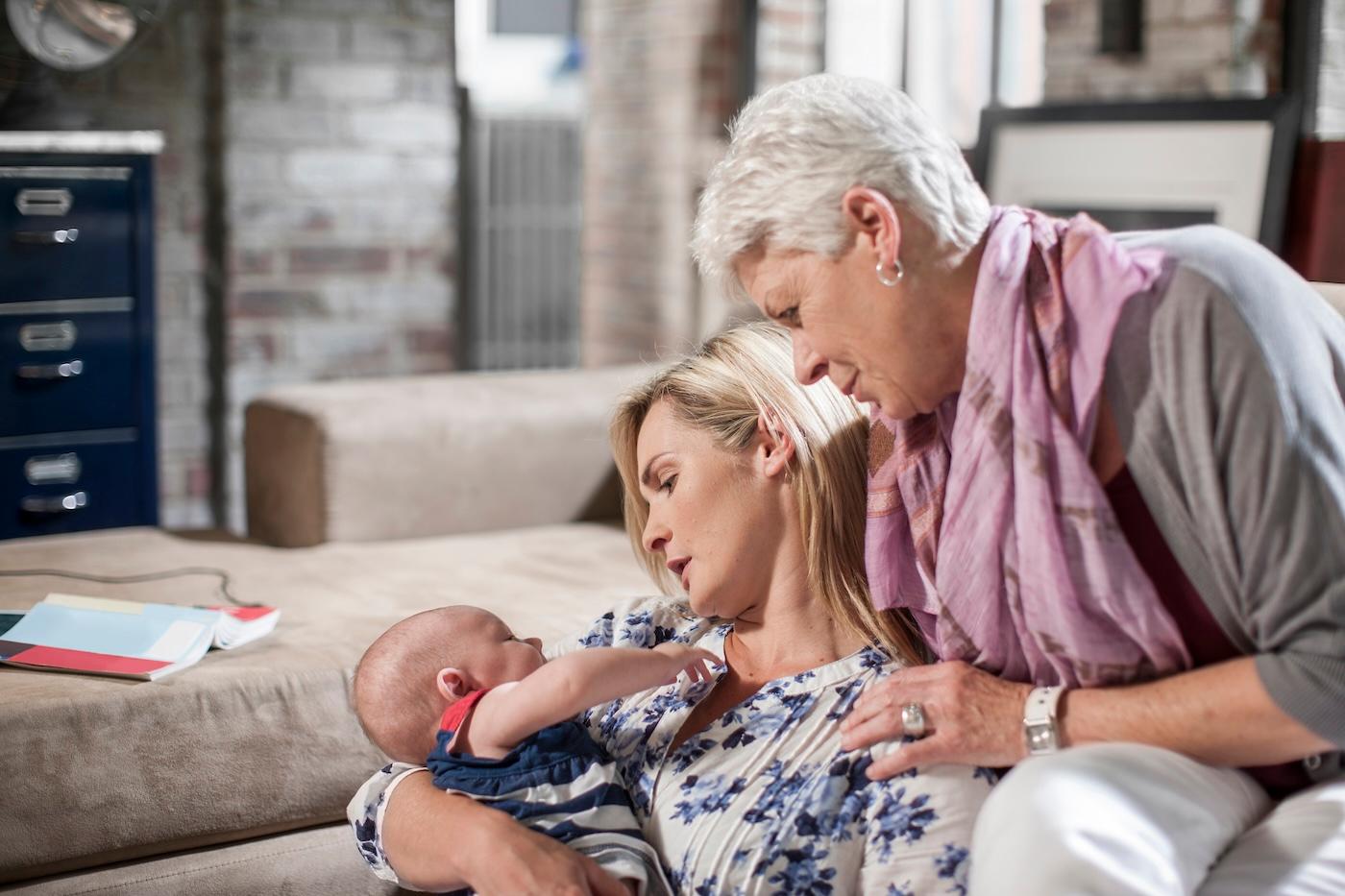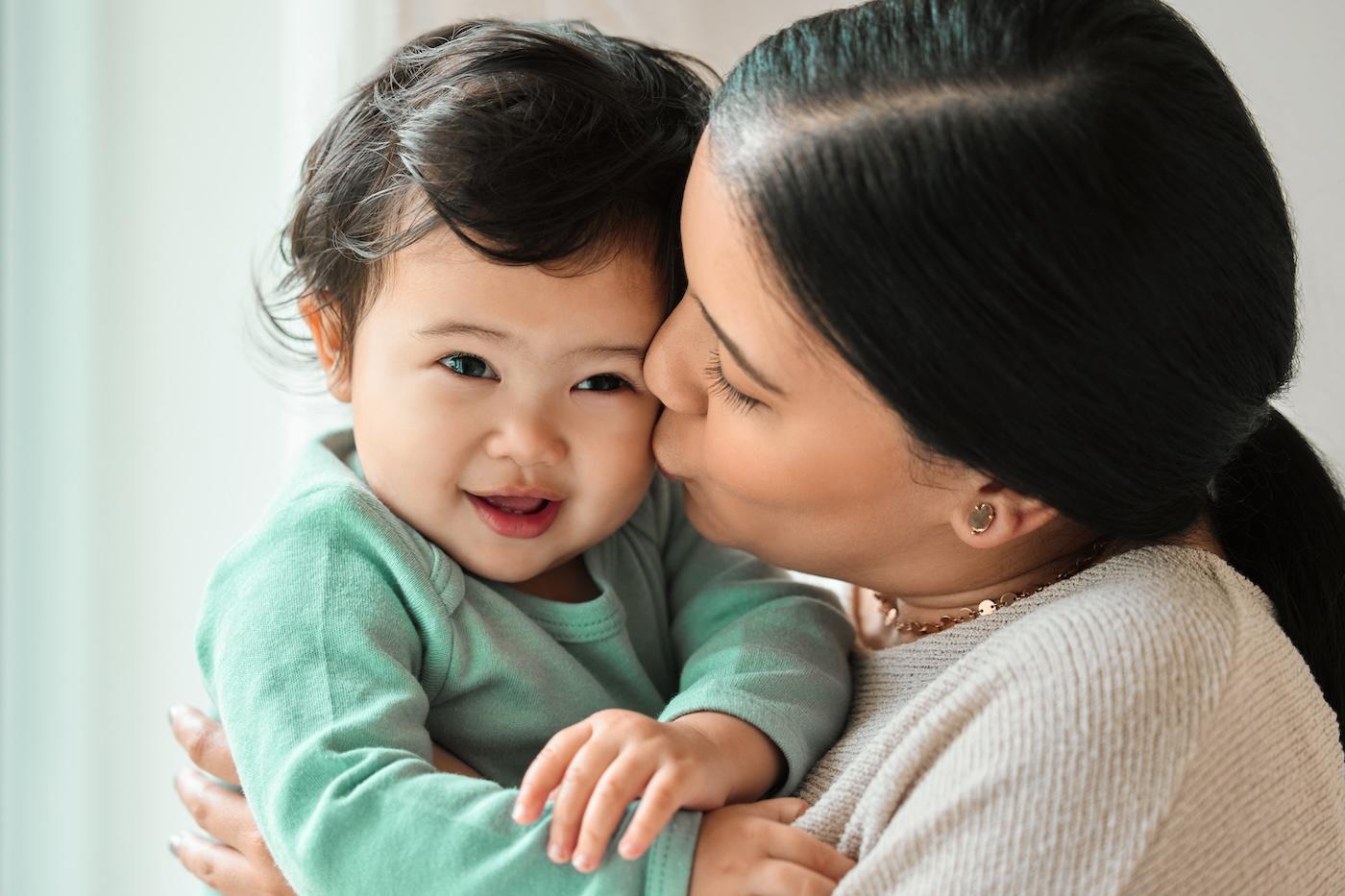PARENTS
How One Mom Turned Her Postpartum Pain Into a Lifeline for Others
After experiencing PPD, psychotherapist Molly Nourmand founded Life After Birth to offer the honest, healing support she longed for.

Written by
Happiest Baby Staff

When Molly Nourmand became a mum, she was as prepared as she thought she could be—she had a birth doula, a postnatal plan, and professional experience as a psychotherapist. But nothing could fully shield her from the emotional upheaval that followed the birth of her daughter. Like so many new parents, Molly found herself in the throes of perinatal depression, grappling with isolation, sleep deprivation, and the pressure to “bounce back.”
That life-altering experience led her to create Life After Birth, a maternal mental health practice that supports people from pre-conception through postnatal. What began as in-person support circles has blossomed into a virtual group therapy practice for parents across California. Molly’s approach is rooted in Psychodynamic Theory and shaped by her deep background in yoga, meditation, somatic experiencing, and Depth Psychology.
We connected with Molly to learn about her own postnatal journey, the unspoken emotional challenges new parents face, and why she considers community one of the most powerful tools for healing.
What was your own postnatal experience like, and how did it shape your work as a maternal mental health advocate and therapist?
I thought I checked all the boxes to prepare for new motherhood: Birth doula? Check. Consume placenta? Check. Night nurse? Check. Now I say to my pregnant clients, “Expect the unexpected.”
After my daughter was born, a combination of risk factors coupled with a birth complication, lack of support (night nurse only booked for three weeks), isolation (I live in Los Angeles off of a canyon that is not walkable), sleep deprivation (small baby; exclusively breastfed), and marital challenges became the perfect storm for me developing perinatal depression.
Since I’m a psychotherapist armed with tools, resources and knowledge, I thought I would somehow be able to prevent it, but I soon realised that I was not immune. As I began to recover, I got the call to hold space for the initiation into motherhood. I was underwhelmed with the lack of depth in the mummy & me groups I had attended and was craving more honest conversations about the massive identity changes that go along with becoming a mother.
Hence, I created what I wish I would have had.
In your work, what are some of the most common mental health challenges new mums face—but may be afraid to talk about?
Even with all the growing normalisation of going to therapy, there is still a stigma and shame for feeling depressed after you become a mother. When you are experiencing postnatal depression, there’s such a clash between what you are supposed to feel (all joy!) and what you are actually feeling (a mixture of joy, sadness, grief, and anxiety).
Another issue I see is identity changes–especially related to one’s relationship to her career. Because there is no federal mandate for paid maternity leave in the United States, and only a minority of workers have access to paid leave through their employers, birthing people are forced to return to work much sooner than they are ready to. Mat leave aside, I see shame–there is that word again–around how new mums feel about their relationship to work. I see it manifest in different ways: mothers wanting to get back to their careers because staying at home with the baby feels infinitely harder than doing paid work; and women wanting to stay home with their baby because they can’t wrap their head or heart around being away from their child.
Lastly, I would say Perinatal Obsessive Compulsive Disorder (OCD), is a mental health challenge that can be hard to talk about. [Perinatal OCD is characterised by repetitive, unwanted, intrusive thoughts (obsessions) and irrational, excessive urges to do certain actions (compulsions). These obsessions and compulsions often centre around the health and safety of the pregnancy and/or baby.]
Interestingly, most new parents experience scary and intrusive thoughts about their new baby. It makes sense though if you think about it—having the most precious jewel you’ve ever been responsible for can lead your mind to worst case scenarios. It’s a similar feeling to being in a china shop and imagining breaking all the fragile items. However, if the disturbing images increase with frequency and intensity, include compensatory behaviour, and/or interfere with your functioning, then it may be pointing to Perinatal OCD.
Why is it important to talk about postnatal anxiety and depression beyond the first few weeks or months after birth?
First, let’s discuss the difference between baby blues and perinatal mood and anxiety disorders (PMAD).
Up to 80% of new mothers experience the baby blues after giving birth. It’s caused by the sudden change in hormone levels (drop in oestrogen and progesterone) after delivery, combined with stress and lack of sleep. You might be tearful, overwhelmed, emotionally fragile and experience mood swings. Sounds pretty normal to feel soon after birthing, right? The baby blues begin within the first couple of days after delivery, peak around one week, and resolve by the end of the second week postnatal without any intervention.
While the baby blues and perinatal depression do have some overlapping symptoms, if they don’t go away after a few weeks, worsen, or the onset is after the first two weeks, then you may be suffering from a PMAD.
Now to answer your question, Postnatal Depression and Anxiety can develop within the first year after birth, and can persist if not treated. To give you an example of how this can present: I have seen clients who experienced unprocessed birth trauma, followed by a Perinatal Depression and/or Anxiety. Then they come to see me when they are pregnant again or have just given birth to their second child. You can see how things can get compounded, right? While you can treat trauma years after it takes place, it is preferable to do so closer to the scene of the crime so to speak (same with physical traumas, too).
How do cultural expectations and societal messaging impact maternal mental health?
There is no space for authenticity about your experience when you are asked, “Isn’t it great!?” "Aren’t you so in love!?” and “When are you going to try for another!?” Also, there are phrases that seep into the psyche of the new mother and eat away at her:
- Bounce back
- Back to work
- Do it all
- Have it all
- Good mother
Having spaces to have honest conversations with other mums can help normalise what you are feeling. In addition, being mindful of how much compare-and-despair doomscrolling you’re doing is a must.
What role does community play in maternal mental health and have there been any particularly moving or powerful moments in the Life After Birth community that have stuck with you?
Community. Is. Everything. In my experience, group medicine can be one of the most healing salves during this delicate time. A woman in a previous After Birth group of mine has a son who had to have heart surgery. The outpouring from the other mothers in this support circle was extraordinary—I was floored and deeply touched by all the ways in which they showed up for her.
What gives you hope in the maternal mental health space right now?
So much has changed and progressed in the past decade since I had my daughter in 2016 (also the birth of SNOO!). There is way more awareness, resources, and support around PMADs. Plus, myriad books and podcasts, celebrities speaking out, thought leaders emerging. It’s really a burgeoning field that I continue to draw inspiration and passion from.
If you could share one message with new or expecting parents who are struggling emotionally, what would it be?
PMADs are treatable and temporary, so don’t wait to reach out for help. The day you admit to yourself that you’re not okay, will be the beginning of your recovery.
Disclaimer: The information on our site is NOT medical advice for any specific person or condition. It is only meant as general information. If you have any medical questions and concerns about your child or yourself, please contact your health provider. Breastmilk is the best source of nutrition for babies. It is important that, in preparation for and during breastfeeding, mothers eat a healthy, balanced diet. Combined breast- and bottle-feeding in the first weeks of life may reduce the supply of a mother's breastmilk and reversing the decision not to breastfeed is difficult. If you do decide to use infant formula, you should follow instructions carefully.
SHARE THIS ARTICLE
PARENT PICKS
Bestsellers



















